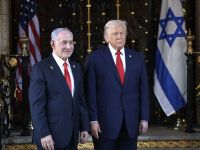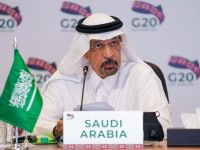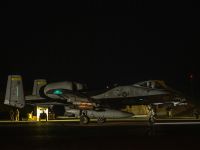The key issue of a transitional government that would strip President Bashar Assad of his powers blocked any progress Monday in Syrian peace talks, described by one delegate as “a dialogue of the deaf.”
U.N. mediator Lakhadr Brahimi admitted that talks “haven’t produced much.” But he said he would bring the country’s warring sides together again Tuesday for another attempt at political discussions.
“Tomorrow we are going to put forward the Geneva communique ... then we are going to decide with them how we are going to proceed in discussing its many elements,” he said, in reference to a text agreed by world powers in 2012 calling for the creation of a transitional governing body in Syria.
The gulf between the two sides was on full display at a turbulent morning session Monday in which the delegations from the opposition and the Syrian government faced off on the question of Assad’s future.
The regime set out a statement of principles that did not deal with a political transition and was immediately rejected by the opposition.
The government’s “declaration of basic principles” said Syrians would choose a political system without “imposed formulas” from abroad, an apparent reference to Western and regional demands that Assad resign.
Regime delegation member Buthaina Shaaban said the government had presented “political principles which we thought no two Syrian persons should disagree with” – including protecting the country’s sovereignty, preserving state institutions and stopping the threat from “terrorist” groups. “We were surprised that this basic paper was rejected by the other side,” she said.
The opposition called the paper a deviation from the talks’ main goal of a transitional government.
Rima Fleihan, a member of the opposition National Coalition’s delegation, said: “The discussions were not constructive today because of the regime’s strategy to deflect ... [and] change the subject by talking of terrorism.”
Murhaf Jouejati of the coalition said the meeting ended on a “sour note,” and the session was broken up by Brahimi after the government delegation became confrontational.
“We thought there was no point in continuing since it was going to be a dialogue of the deaf,” Jouejati said.
But officials on both sides said they had no plans to leave the talks.
Brahimi said opposition delegates, who have asked for the release of 50,000 detainees, had agreed to a regime request to try to provide a list of those held by armed rebel groups – though many of these groups, fighting among themselves, do not recognize the negotiators’ authority.
Syrian Deputy Foreign Minister Faisal Mekdad said the government had examined an opposition list of 47,000 people believed to have been arrested by Assad’s forces and found most had either never been held or were now free. He also denied that any children were being held.
White House spokesman Jay Carney said the U.S. was “realistic about how difficult this is going to be, but we are completely convinced that this is the only way forward for Syria, and that’s through negotiations.”
“What’s important is that the two parties have sat in the same room over the past several days to discuss critical issues. And this process is ongoing. And I would expect quite a few ups and downs along the way,” Carney said. “But it is the only way to end the conflict in Syria. It has to be ended through a negotiated political settlement.”
On Sunday, after three days of talks, a tentative agreement was reached for the evacuation of women and children trapped in parts of the central city of Homs before aid convoys go in. As of Monday night, there was no progress on the ground.The U.S. demanded that Syria allow aid to those “starving” in the city. “We firmly believe the Syrian regime must approve the convoys to deliver badly needed humanitarian aid into the Old City of Homs now,” spokesman Edgar Vasquez said. “The situation is desperate and the people are starving.”
The U.S. ambassador to United Nations called on Russia to use its influence with the Syrian regime to help get aid to the city.
Samantha Power, in a speech during international Holocaust commemoration day, said that just as Russian soldiers liberated Auschwitz in 1945, “the world again needs Russia to use its influence, this time to ensure that food reaches the desperate and starving people imprisoned in besieged Homs, Yarmouk, the Damascus suburbs and elsewhere.”
Russia’s Mission to the U.N. criticized Power for bringing the Holocaust into the Syria issue. “We regard such analogies as entirely inappropriate,” said Alexey Zaytsev, the press-attaché at the mission.
Shaaban dismissed the aid effort for Homs as a distraction aimed at bolstering the opposition’s credentials. “This is to make a big fuss about taking two trollies to Homs,” she said. “Is this why we came to Geneva? Or we came here to solve the problem in Syria?” she said.








